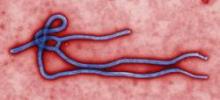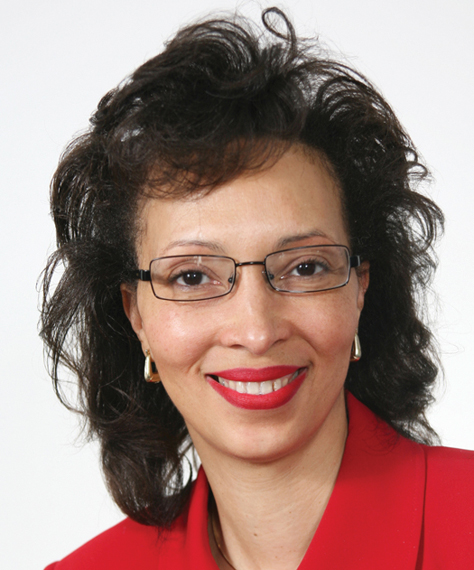User login
Recently, two American missionary workers in Liberia made headlines when they became infected with the Ebola virus, which causes a highly fatal hemorrhagic fever. They both received an experimental "secret serum" called ZMapp while in Africa and have since been flown back to the United States to be cared for at Emory University Hospital in Atlanta.
The response to their return has been mixed. While some hail their incredible selflessness and the mission they set out to accomplish, others are lukewarm, indifferent, or even very opposed to their return – so opposed that security was heightened in response to threats. I, of course, am among the former.
I once went on a 5-day missionary trip to Nicaragua. Optimistic about the potential to help the poor and hurting, my biggest challenges were the long plane ride and the hotel accommodations, which were not quite to my liking. The thought of contracting a potentially fatal disease and never returning home to my family never, ever crossed my mind.
Dr. Kent Brantly and Nancy Writebol, both missionary workers, were of a completely different mindset; they had different goals, they faced different challenges. They willingly boarded a plane to fly thousands of miles away from the comfort of their homes, the love of their families, the security of their close friends. They risked everything to care for complete strangers, strangers who posed a real threat to their lives. They never expected to receive any earthly thing in return. Interestingly, after contracting Ebola, Dr. Brantley did receive a unit of blood from a 14-year-old who had survived his fight with the Ebola virus while under his care.
Personally, I can only hope that one day I will have even half of the compassion and servant’s heart that these brave, incredibly selfless individuals possess.
I have to believe that those who object to their presence on American soil are afraid. They do not know what to expect and fear the epidemic spreading to the United States. I remember when I first started treating HIV/AIDS patients in the early ’90s. It was new and it was very, very scary. In those days, we donned protective garments above and beyond what we now know is necessary. Still, at times I, along with countless other health care workers, was overwhelmed by fear.
Like the human immunodeficiency virus, the Ebola virus is spread through direct contact with the blood or other body fluids of an infected person or through exposure to infected objects such as needles. It is not airborne, nor is it spread by contaminated food and water. Unlike with HIV, however, Ebola can be fatal within days. Another difference is that it is believed to be transmissible only if the individual is symptomatic, while countless cases of HIV were the result of exposure to seemingly healthy individuals.
While some in the American public still decry that Dr. Brantley and Mrs. Writebol were brought to a hospital in the United States, I have to believe that the great majority of Americans keep these two incredible individuals in their thoughts and prayers.
Dr. Hester is a hospitalist with Baltimore-Washington Medical Center who has a passion for empowering patients to partner in their health care. She is the creator of the Patient Whiz, a patient-engagement app for iOS. Reach her at [email protected].
Recently, two American missionary workers in Liberia made headlines when they became infected with the Ebola virus, which causes a highly fatal hemorrhagic fever. They both received an experimental "secret serum" called ZMapp while in Africa and have since been flown back to the United States to be cared for at Emory University Hospital in Atlanta.
The response to their return has been mixed. While some hail their incredible selflessness and the mission they set out to accomplish, others are lukewarm, indifferent, or even very opposed to their return – so opposed that security was heightened in response to threats. I, of course, am among the former.
I once went on a 5-day missionary trip to Nicaragua. Optimistic about the potential to help the poor and hurting, my biggest challenges were the long plane ride and the hotel accommodations, which were not quite to my liking. The thought of contracting a potentially fatal disease and never returning home to my family never, ever crossed my mind.
Dr. Kent Brantly and Nancy Writebol, both missionary workers, were of a completely different mindset; they had different goals, they faced different challenges. They willingly boarded a plane to fly thousands of miles away from the comfort of their homes, the love of their families, the security of their close friends. They risked everything to care for complete strangers, strangers who posed a real threat to their lives. They never expected to receive any earthly thing in return. Interestingly, after contracting Ebola, Dr. Brantley did receive a unit of blood from a 14-year-old who had survived his fight with the Ebola virus while under his care.
Personally, I can only hope that one day I will have even half of the compassion and servant’s heart that these brave, incredibly selfless individuals possess.
I have to believe that those who object to their presence on American soil are afraid. They do not know what to expect and fear the epidemic spreading to the United States. I remember when I first started treating HIV/AIDS patients in the early ’90s. It was new and it was very, very scary. In those days, we donned protective garments above and beyond what we now know is necessary. Still, at times I, along with countless other health care workers, was overwhelmed by fear.
Like the human immunodeficiency virus, the Ebola virus is spread through direct contact with the blood or other body fluids of an infected person or through exposure to infected objects such as needles. It is not airborne, nor is it spread by contaminated food and water. Unlike with HIV, however, Ebola can be fatal within days. Another difference is that it is believed to be transmissible only if the individual is symptomatic, while countless cases of HIV were the result of exposure to seemingly healthy individuals.
While some in the American public still decry that Dr. Brantley and Mrs. Writebol were brought to a hospital in the United States, I have to believe that the great majority of Americans keep these two incredible individuals in their thoughts and prayers.
Dr. Hester is a hospitalist with Baltimore-Washington Medical Center who has a passion for empowering patients to partner in their health care. She is the creator of the Patient Whiz, a patient-engagement app for iOS. Reach her at [email protected].
Recently, two American missionary workers in Liberia made headlines when they became infected with the Ebola virus, which causes a highly fatal hemorrhagic fever. They both received an experimental "secret serum" called ZMapp while in Africa and have since been flown back to the United States to be cared for at Emory University Hospital in Atlanta.
The response to their return has been mixed. While some hail their incredible selflessness and the mission they set out to accomplish, others are lukewarm, indifferent, or even very opposed to their return – so opposed that security was heightened in response to threats. I, of course, am among the former.
I once went on a 5-day missionary trip to Nicaragua. Optimistic about the potential to help the poor and hurting, my biggest challenges were the long plane ride and the hotel accommodations, which were not quite to my liking. The thought of contracting a potentially fatal disease and never returning home to my family never, ever crossed my mind.
Dr. Kent Brantly and Nancy Writebol, both missionary workers, were of a completely different mindset; they had different goals, they faced different challenges. They willingly boarded a plane to fly thousands of miles away from the comfort of their homes, the love of their families, the security of their close friends. They risked everything to care for complete strangers, strangers who posed a real threat to their lives. They never expected to receive any earthly thing in return. Interestingly, after contracting Ebola, Dr. Brantley did receive a unit of blood from a 14-year-old who had survived his fight with the Ebola virus while under his care.
Personally, I can only hope that one day I will have even half of the compassion and servant’s heart that these brave, incredibly selfless individuals possess.
I have to believe that those who object to their presence on American soil are afraid. They do not know what to expect and fear the epidemic spreading to the United States. I remember when I first started treating HIV/AIDS patients in the early ’90s. It was new and it was very, very scary. In those days, we donned protective garments above and beyond what we now know is necessary. Still, at times I, along with countless other health care workers, was overwhelmed by fear.
Like the human immunodeficiency virus, the Ebola virus is spread through direct contact with the blood or other body fluids of an infected person or through exposure to infected objects such as needles. It is not airborne, nor is it spread by contaminated food and water. Unlike with HIV, however, Ebola can be fatal within days. Another difference is that it is believed to be transmissible only if the individual is symptomatic, while countless cases of HIV were the result of exposure to seemingly healthy individuals.
While some in the American public still decry that Dr. Brantley and Mrs. Writebol were brought to a hospital in the United States, I have to believe that the great majority of Americans keep these two incredible individuals in their thoughts and prayers.
Dr. Hester is a hospitalist with Baltimore-Washington Medical Center who has a passion for empowering patients to partner in their health care. She is the creator of the Patient Whiz, a patient-engagement app for iOS. Reach her at [email protected].

